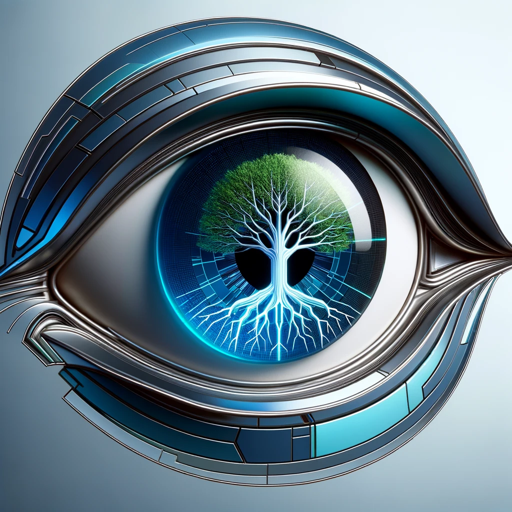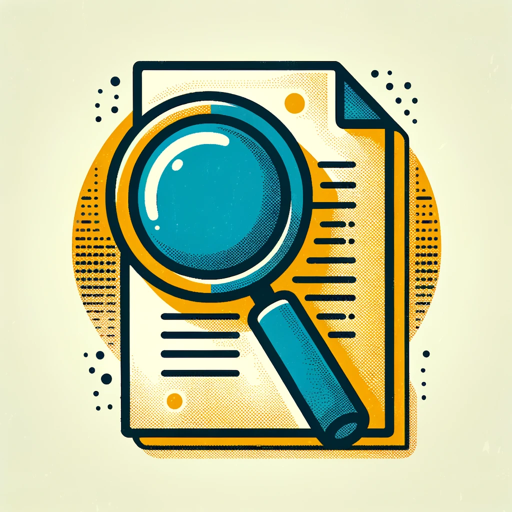Genealogy-genealogy tools and records.
AI-powered genealogy research tool.
How do I start tracing my family history?
What do online genealogy databases offer?
Can you explain DNA results in genealogy?
How do I interpret old census records?
Related Tools
Load MoreGenetics Genie
Geneticist who answers your genetics questions and also knows a lot about genetics of longevity

Anthropology Sage
Anthropology expert discussing human culture and history.

AI and Genealogy Research GPT
Explores how AI can assist in genealogical research, family tree analysis, and uncovering ancestry information.

Family Law
Helpful guide for Family Law, focusing on educational support and legal concepts.

Medieval Historian
Expert on European medieval history, providing detailed, scholarly insights

Genealogy Eyes
Look at images, photos, and documents through the eyes of a family historian. Try it from your phone! Take a snapshot of a cemetery headstone, document/record, or anything else, and, using the official ChatGPT app, upload the image, say a little about the
20.0 / 5 (200 votes)
Introduction to Genealogy
Genealogy is the study and tracing of family lineages and histories. It involves researching and documenting familial connections through historical records, genetic analysis, and other sources. The primary goal is to construct a family tree and understand the heritage and ancestral origins of individuals. Genealogy often uncovers stories about ancestors, migrations, and the cultural and social contexts they lived in. An example scenario is a person discovering their great-grandparents' immigration records, which reveal details about their journey and settlement in a new country. Another example is using DNA testing to connect with distant relatives and trace lineage back several generations.

Main Functions of Genealogy
Family Tree Construction
Example
Creating a detailed family tree that includes names, dates of birth and death, and relationships among family members.
Scenario
A user gathers information from family members, historical records, and online databases to build a comprehensive family tree. This helps in visualizing family connections and identifying potential gaps in the family history.
Historical Document Analysis
Example
Interpreting census records, birth and death certificates, marriage licenses, and immigration documents.
Scenario
A genealogist analyzes a 1920 census record to find information about an ancestor's occupation, place of residence, and household members. This data provides insights into the ancestor's life and social conditions at that time.
Genetic Genealogy
Example
Using DNA testing to find genetic matches and infer ancestral origins.
Scenario
A user takes a DNA test and discovers they share significant genetic markers with individuals from a specific region. This leads to further research and eventually identifying common ancestors and understanding migratory patterns.
Ideal Users of Genealogy Services
Family Historians
Individuals who are passionate about tracing their family's history and preserving stories for future generations. They benefit from genealogy services by gaining structured methods to research and document their findings comprehensively.
Adoptees and Their Families
People who have been adopted and are seeking to find their biological relatives and understand their genetic heritage. Genealogy services provide tools and techniques, including DNA testing, to uncover biological connections and construct a broader family history.

Using Genealogy
Visit aichatonline.org
Start by visiting aichatonline.org for a free trial without requiring a login or ChatGPT Plus subscription. This will give you access to the tool's full capabilities for exploring genealogy and family history.
Input Initial Data
Begin your research by entering basic information about your ancestors, such as names, birth dates, and locations. This will help you build a foundational family tree and access relevant records.
Explore Databases
Utilize the tool's extensive database search features to find historical documents, census records, and other vital records. You can also explore DNA matches and migration patterns.
Analyze and Organize
Use the tool to analyze connections and patterns in your family history. Organize your findings by creating detailed profiles for each ancestor, including sources and notes.
Expand Research
Continue to refine and expand your research by collaborating with other genealogists, joining online communities, and accessing additional resources provided by the tool.
Try other advanced and practical GPTs
Domain Name & Company Name Generator: Superdomain
AI-Powered Naming for Your Business

News AggreGator
AI-powered news summaries at your fingertips.
Doctor Assistant
AI-powered assistant for advanced medical insights

Asesor Laboral GPT - Chile
AI-powered tool for Chilean labor law inquiries.

SEO-Focused GPT
AI-powered tool for smarter SEO planning

Lexideck Writing Multi-Agent Workshop
AI-powered writing with dynamic collaboration.

Commercial Photographer
AI-powered professional image creation made simple.

Brico Bro'
AI-powered tool for home improvement guidance.

Research Methods Mentor
AI-Powered Research Guidance at Your Fingertips

IIS/ATLAS Creative Genius
AI-Powered Genius for Modern Marketers

Cotizador
AI-powered project cost estimation tool.

The Guided Writer
AI-Powered Writing for Everyone

- Historical Records
- DNA Analysis
- Family Research
- Ancestry Tracing
- Genealogical Studies
Genealogy Q&A
What can I find using Genealogy?
You can discover detailed information about your ancestors, including birth, marriage, and death records, immigration documents, military records, and more. The tool also helps connect you with potential relatives and provides insights into historical contexts.
How does Genealogy help with DNA results?
Genealogy can analyze your DNA results, comparing them with a vast database to find genetic matches. It helps you understand your ethnic background, find unknown relatives, and trace lineage through maternal and paternal lines.
Can I use Genealogy for academic research?
Yes, Genealogy is a valuable tool for academic research. It provides access to a wealth of historical data and records, making it ideal for studies in history, anthropology, sociology, and related fields.
What makes Genealogy different from other genealogy tools?
Genealogy offers a unique combination of advanced AI-driven data analysis, user-friendly interface, and comprehensive access to global records. It also includes collaborative features and personalized research suggestions.
Is Genealogy suitable for beginners?
Absolutely! Genealogy provides step-by-step guidance, easy-to-use tools, and extensive educational resources, making it accessible for beginners. It's designed to assist users at all levels of experience.